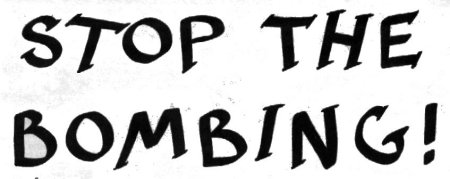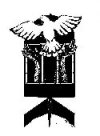
- Renewed bombing of Iraq brings protest, arrests.

The silent but exceedingly deadly siege war of sanctions against
Iraq boiled over in December, when the U.S. and Great Britain unilaterally
reinitiated bombing attacks on December 16. Around the globe, after more
than a year of taunts and threats to bomb over the disputed issue of inspections
for weapons of mass destruction, many were primed for protest.
Within 48 hours of the air attacks beginning, demonstrations were reported in more than 100 U.S. cities and towns. At more than a dozen locations protesters numbered in the hundreds, sometimes for several days.
Overseas, much larger demonstrations were reported in more than 30 countries,
and in multiple cities of many countries. Several U.S. embassies
and consulates were damaged by thousands of angry demonstrators.
Marine guards in Damascus fired tear gas from the embassy roof, while nearby
the ambassador’s residence was sacked and destroyed. On the occupied
West Bank, one Palestinian youth demonstrator was killed by Israeli soldiers.
While arrests occurred in a number of cities, organized acts of civil disobedience were not widespread, and in the United States, many were undertaken by Catholic Worker communities. Numerous demonstrations - in Detroit, St. Louis and elsewhere - included sit-ins and blockades that risked arrest but concluded without any. Other arrests occurred out of the spirit of spontaneous demonstrations.
In protest of escalated threats of bombing, five members of the Dorothy Day House Catholic Worker community in Washington, D.C., were arrested November 17 for praying in the restricted zone in front of the White House.
Community members returned to join many more in protest at the White House on the day bombing began, December 16, and eight people were arrested in the same zone. Across Lafayette Park, another man was arrested as the main demonstration was breaking up and one group was confronted by pro-war agitators. In the altercation, one war resister was arrested for assault after he broke a pro-war demonstrator’s sign.
Dorothy Day House was already hosting a vigil for peace in Iraq each Friday in front of the White House, and on December 18, three vigilers remained to pray in the restricted zone and were arrested.
In Syracuse on the day bombing resumed, fifty people rallied at the federal building. Five of them took paint to the walls, in large letters writing STOP, MURDERERS and SHAME. Jerry Berrigan (uncle of the Jerry Berrigan noted elsewhere in this issue for a Duluth anti-war protest), Peter DeMott and Dick Keough were each charged with a felony and two misdemeanors, and await separate trials, Berrigan in late June and DeMott and Keough at a soon-to-be-announced date. Audrey Stewart and Lisa Guido were charged with three misdemeanors and face trial June 8.
Thursday, December 17, was the first of several days of protest in many cities. Over 200 people assembled at the Portland, Oregon federal building that afternoon. Police, some on horseback and others in riot gear, corralled the crowd away from passing traffic, eventually eliminating that audience by blocking off streets around the demonstration. One large group of demonstrators regrouped and marched with an uninvited police escort trailing them. After reassembling downtown, another smaller group attempted to block traffic on a nearby bridge. Police moved in forcefully and arrested 26 people for failure to disperse, targeting perceived leaders and one person acting as police liaison with the demonstration. Arraignment for most of those arrested is expected later this summer. Some have had charges dismissed and then reinstated, and three people who failed to appear for arraignment have had a warrant issued for their arrest.
Catholic Worker John Heid began a solo anti-war vigil on the steps of the federal building in Duluth, Minnesota, Thursday morning. By noon, he had been joined by nearly 100 people, including high school and college students skipping class. After an impassioned speak-outs, a group of people occupied the federal building for a teach-in. Police forced much of the crowd back outside before the doors could be closed and locked. Police arrived and arrested nine occupiers who refused to leave. All were cited for trespass. Bonnie Urfer was held on an outstanding warrant from a protest against dry cask storage of irradiated nuclear fuel. She was released on $200 bond. All but Urfer returned for arraignment in January and pleaded not guilty, pending trial in March.
Behind a banner declaring “We Arm Dictators and Bomb Their People,” Catholic Workers Chris Allen-Douçot and Andy Piefer blocked an entrance to the Hartford, Connecticut federal building December 17 and were arrested. Their charges were later dismissed.
After over 300 people rallied at the federal building, Chicago protesters started processing through the Loop (downtown area). They went into the street and about fifty people sat down. The police threatened arrest. All but three moved. One man from the Middle East was being singled out by police. Charles Carney called for the demonstrators to circle him to prevent this. Carney and the three on the ground were arrested. They were later fined $10-15 for blocking the street. The judge said she agreed with the rightness of their action but, “You still blocked the street.” No one paid.
Direct action in Ann Arbor, Michigan, brought the arrest of two men at the post office on Friday, December 18. A dozen people joined the holiday crush of postal customers to attempt mailing small parcels of medicine to Iraq, only to each be refused due to the sanctions. Meanwhile, Jim Lupton and then Bill Thomson were arrested while distributing literature opposing the bombing and sanctions in Iraq to postal patrons. Both men were cited for trespass and released. For reasons unknown, Thomson’s charges were later dismissed but Lupton’s trial has been postponed until August.
In a letter to the public a few days later, Thomson explained the issue
as he saw it:
“... At the precise moment that bombs were raining on Iraq, Chairman
Hyde, in his argument in favor of the impeachment of the President, was
describing how we have evolved over thousands of years from a culture that
uses force to solve problems to one that is committed to the rule of law.
The irony is overwhelming. We clearly have not evolved to a culture
that renounces force and violence. And not only physical violence,
but violence in all of its forms; physical, military, economic, institutional,
cultural, racial, family, and religious.
“And I am concerned about children and violence; what we teach them,
and what we do to them, especially to the Iraqi child who died in the 5
minutes it took you to read this article.”
In some cities, anti-war demonstrations on Saturday, December 19 merged with previously announced protests in support of freedom for Leonard Peltier.
In Los Angeles on Saturday, where police closed roads and shut down a demonstration’s sound system, several arrests were reported.
In response to the first news of bombing raids, Faslane Peace Campers at the Trident submarine base in Scotland spontaneously carried out all night civil disobedience actions. These included cycling though the gates into the base, cutting the fence several times, breaching the base security and gaining access. Five people were arrested and face a variety of charges.
At the Menwith Hill Station in northern England, where the U.S. Navy monitors global communications, one woman was arrested after symbolically soiling the barracks flags of the U.S. and U.K.
In London on December 17, Gabriel Carlyle, co-coordinator of Voices in the Wilderness U.K., and Seeds of Hope Ploughshares activist Andrea Needham put an uncharacteristically honest face on the Foreign Office. After marking the Ministry’s exterior wall with (reportedly fake) blood, Carlyle wrote upon it “Stop the Killing,” while Needham wrote “Lift the Sanctions.” Both of them were arrested, convicted, and refused to pay £1000 compensation. In March, Needham instead served 28 days in jail, and on May 10, Carlyle was sentenced to a maximum term of 45 days as Her Majesty’s prisoner. He served 22.
